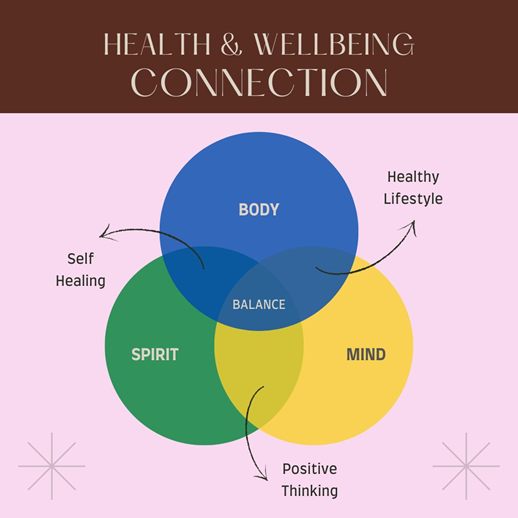The Holistic Approach: Mind, Body, and Spirit
The holistic approach to health emphasizes the interconnectedness of mind, body, and spirit, advocating for a balanced state of well-being where each aspect influences the others. This approach is deeply rooted in ancient health systems, which recognized the importance of integrating these three dimensions for optimal health.

Exploration in Ancient Health Systems
Ancient health systems provided comprehensive frameworks that incorporated physical, mental, and spiritual aspects:
- Ayurveda (India): This system categorizes health into three doshas—Vata (air and space), Pitta (fire and water), and Kapha (earth and water). Balancing these doshas involves physical treatments and mental and spiritual practices, such as meditation and yoga, to maintain harmony.
- Traditional Chinese Medicine (TCM): TCM emphasizes the flow of Qi (vital energy) through meridians. Physical health is linked to emotional states (e.g., liver health affects anger), and spiritual well-being is addressed through practices like acupuncture and Tai Chi.
- Greek Medicine: Hippocratic teachings focused on balancing the four humours—blood, phlegm, yellow, and black bile. This balance extends beyond physical health to mental and emotional well-being, acknowledging that emotional states can affect bodily functions.
Integration of Physical, Mental, and Spiritual Health
- Physical Health: This aspect involves maintaining bodily functions and treating illnesses. Holistic health practices recognize that mental and spiritual conditions can influence physical ailments. For instance, chronic stress can lead to physical symptoms such as headaches or digestive issues.
- Mental Health: Mental well-being includes emotional stability and cognitive clarity. Holistic approaches address mental health by incorporating mindfulness and meditation, which help manage stress and promote emotional balance.
- Spiritual Health: Spiritual well-being involves a sense of purpose and connection. Meditation, prayer, or spiritual rituals foster a deeper understanding of meaning and alignment with one’s values.
Examples of Holistic Practices
- Yoga and Meditation: From ancient India, yoga integrates physical postures (asanas) to strengthen the body, breathing exercises (pranayama) to calm the mind, and meditation to connect with the spirit. This practice promotes overall health by addressing all three aspects—physical, mental, and spiritual.
- Acupuncture and Herbal Medicine: In TCM, acupuncture targets specific points on the body to restore Qi balance, affecting physical health and emotional states. Herbal medicine complements this by supporting physical health and addressing emotional imbalances.
- Energy Healing: Techniques like Reiki and Pranic Healing focus on the body’s energy fields, aiming to clear blockages and harmonize physical, mental, and spiritual health. These practices seek to balance the energy flow, promoting holistic wellness.
In summary, the holistic approach views health as an intricate interplay of mind, body, and spirit. By addressing each dimension through integrated practices, individuals can achieve a more balanced and harmonious well-being.



